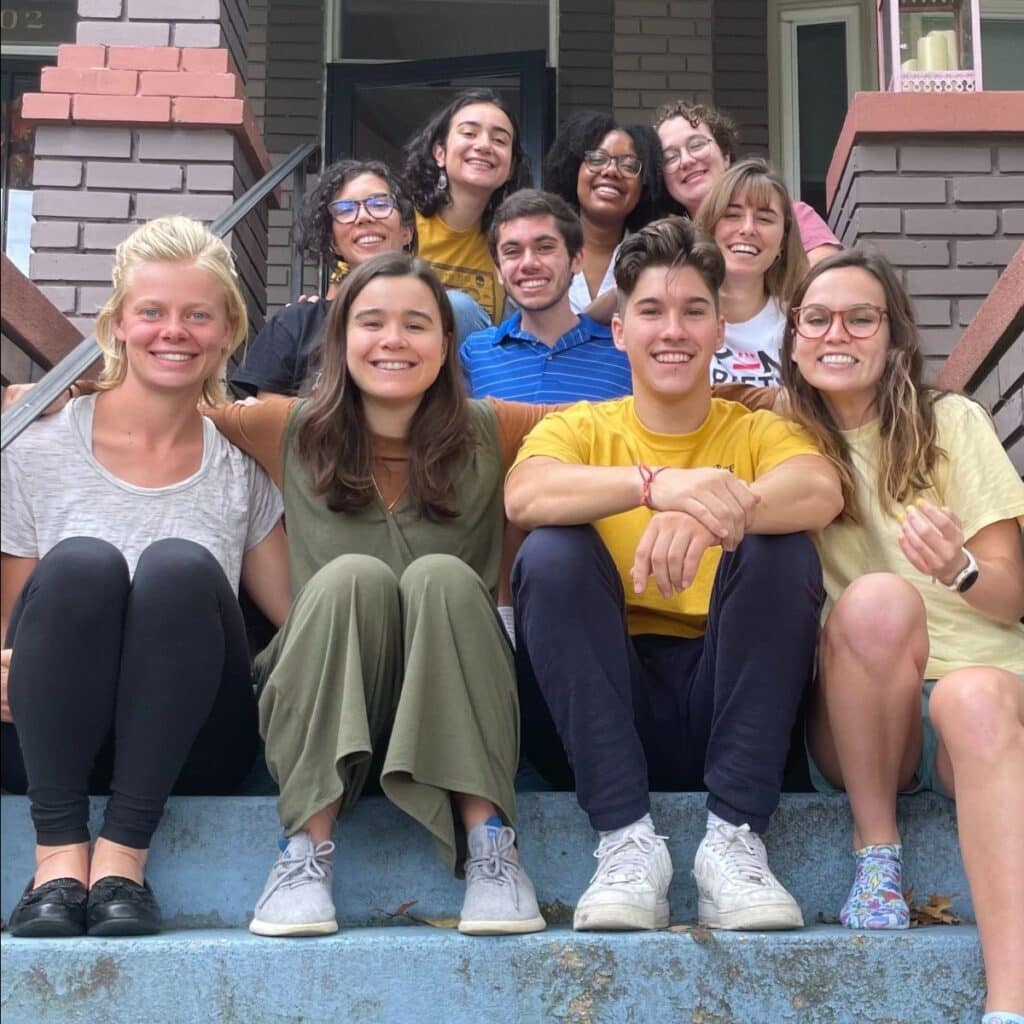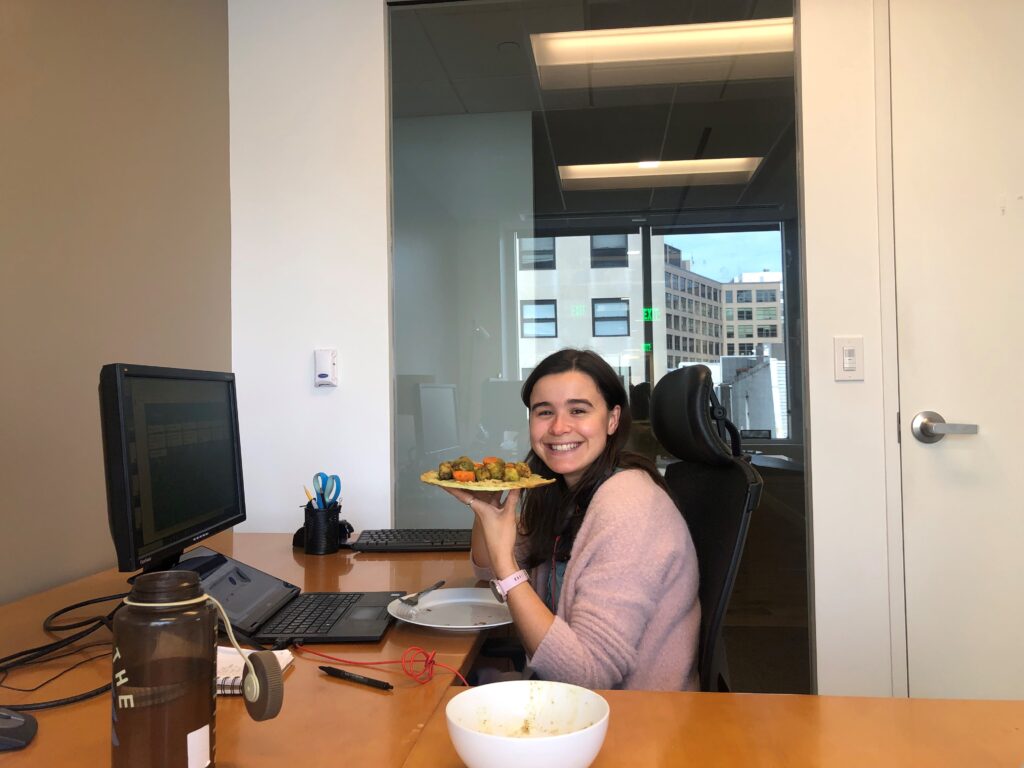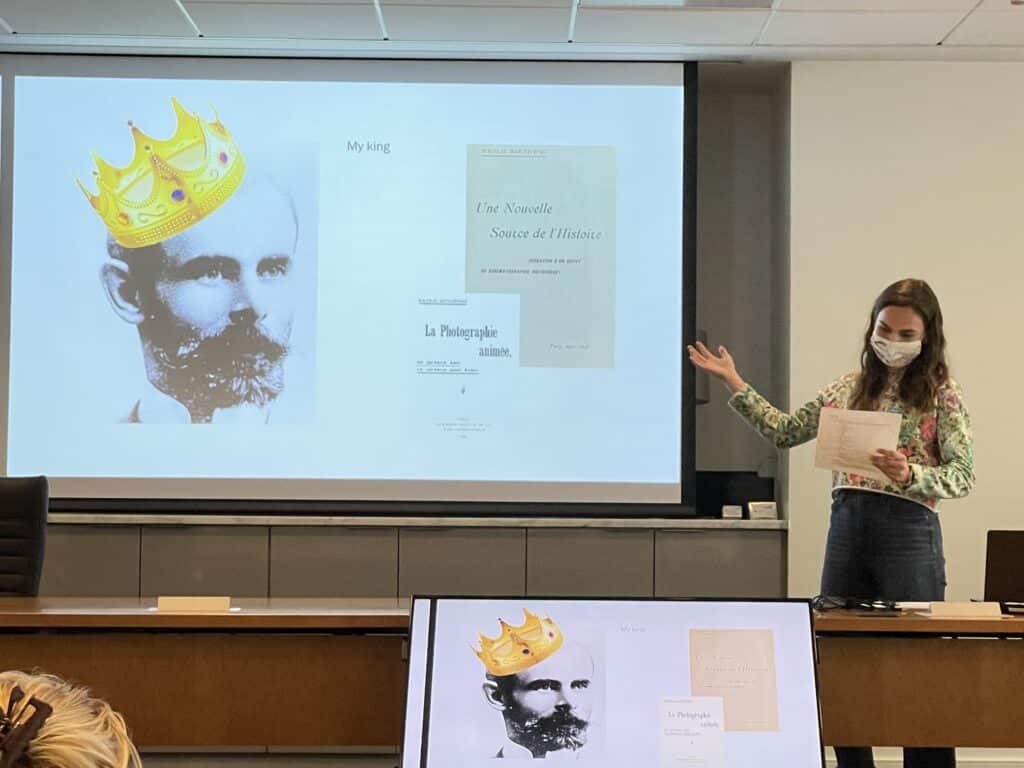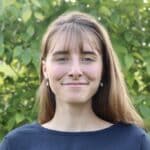
Are you looking for an opportunity to collaborate with others to propose solutions to global issues? The Meridian Institute Project Associate & Ruckelshaus Fellowship may be the opportunity for you!
The Meridian Institute—a mission-driven nonprofit consultancy committed to proposing collaborative solutions to the world’s most complex issues—offers a two-year, hands-on fellowship that allows early career professionals to develop a robust portfolio of research, advocacy work, project management, and so much more.
The Meridian Institute Project Associate & Ruckelshaus Fellowship provides the opportunity for Fellows to contribute to projects related to climate change, agriculture and food systems, science and technology, oceans and coasts, and other focus areas. Fellows will be based at a Meridian Institute office in either Washington, D.C., or Dillon, Colorado, and will be paid a full salary with benefits.
We spoke with current Ruckelshaus Fellow Anne Seefeldt to learn more about the various tasks she juggles on a typical day of the fellowship, the relationships she’s developed with her Meridian colleagues, the most valuable professional skills she’s developed throughout the program, and her advice for anyone planning to apply to join the next cohort of Ruckelshaus Fellows.
Applications to become a Meridian Institute Project Associate & Ruckelshaus Fellow will be opening soon with a mid-January 2023 deadline. See the Meridian Institute website for more details.
1. Tell us about your research and professional journey. What led you to the Ruckelshaus Fellowship?
I found my way to the field of environmental mediation late in undergrad work. Through a collection of courses and professional experiences, I saw the transformative power of collaborative environmental planning—as well as the potential for immense harm when climate initiatives proceed without stakeholder and community buy-in.
For my senior thesis, I researched the development of New York City’s water supply, the largest unfiltered water supply in the United States. That the water remains unfiltered is due, in no small part, to former Department of Environmental Protection Commissioner Marilyn Gelber who gained the trust of both environmental groups fighting for stricter regulations and small-town watershed residents resentful of city influence. During this time, I also worked with two Louisiana tribal leaders to strengthen Louisiana’s Native American State Commission, in hopes of improving State-tribal collaboration that is crucial to the success of the tribes’ disaster resilience initiatives and adaptation to rising sea levels.
Beginning my career, I sought a role that would allow me to continue building collaborative avenues for addressing climate change—bringing stakeholders together across sectors and levels of power to listen, discuss, and share ownership in the process of finding a solution. The Ruckelshaus Fellowship has been the best primer for this kind of work that I could have asked for. As a Fellow, I’ve had the opportunity to not only support but lead the planning and execution of collaborative projects across regions and issue areas—from deforestation and plastic waste to economic development in Louisiana fisheries.
2. Can you describe what a day or week in the life of a Ruckelshaus Fellow is like? How has this opportunity allowed you to advance your research and career?
With such a diverse range of active projects, Fellows’ work days are varied and dynamic. Most juggle two or more projects at once and work in close collaboration with other Meridianites (group work, all day every day!). On a typical work day, I spend at least a quarter of my time in meetings with my teams or with partner organizations, strategizing and coordinating to get work done together. In between calls, I’m usually configuring logistics for large events or convenings, researching, writing reports, synthesizing notes into meeting summaries, and preparing for future meetings by drafting agendas and strategizing a way forward.

To add some color: I kicked off a recent work day with a meeting to discuss the results of a Meridian-commissioned public opinion poll on deforestation in Europe. I then led a meeting with colleagues on Zoom to plan an upcoming keynote event about 2030 forest goals at New York City Climate Week. After a brief lunch with another fellow in the Washington, D.C. office, I prepared an agenda and discussion questions for an upcoming forum bringing companies, government officials, and activists together to discuss reuse and refill as an alternative to single-use plastic. I finished the day off by gathering with other fellows to plan this year’s Fellowship Retreat!
A year into my two-year position, I now lead many meetings (both internal Meridian meetings and external-facing calls) and play key project management roles. I’ve learned to design and execute everything from policy reports to 100+ participant strategic planning convenings and high-profile in-person events. The fellowship is a master class in facilitating tough conversations, communicating effectively, multi-tasking, and managing a tight schedule.
Outside of the day-to-day details, my work also constantly pushes me to consider the big picture: How are my projects creating change? In what ways is this project filling gaps? Are there any stakeholders being left out, and are those invited being listened to and given ownership over the outcome of a process? It’s a rare entry-level job that is intellectually stimulating and challenging, with plenty of opportunities for initiative, leadership, and growth.
3. The Ruckelshaus Fellowship aims to propose collaborative solutions to complex global issues. Talk a little bit about this mission and how it has influenced the way you go about your work or view the world. What has it been like navigating some of these topics with fellow members of your cohort?
As a member of Gen Z, I’m painfully aware of the challenges (climate change, natural disasters, pandemics) threatening livelihoods and casting our collective future in an uncertain light. While these issues are overwhelming, their urgency creates opportunities for humanity to come together in ways we might have never considered possible. So, they remind us that we depend on one another to survive and thrive. They demand collaboration across levels of power, regions, and sectors, as well as a close partnership with low-income communities, people of color, and Indigenous Peoples who are so often most heavily impacted.
As a Meridian Fellow, creating spaces for this kind of collaboration—for people to come together as equal partners in developing innovations, initiatives, and policy ideas—gives me hope for a more just, healthy world. It’s inherently challenging: engaging the right people, building trust, and fostering productive dialogue demands empathy, presence, and an understanding of context, history, and power dynamics. Meridian’s collaborative team culture creates ample opportunity for learning, discussion, reflection, and growth in our work. The fellow cohort is an added bonus—I feel lucky to work with such a passionate and down-to-earth group of young people, and I learn as much from them as I do from my older colleagues.

4. What advice do you have for other scholars who plan to apply to the Ruckelshaus Fellowship?
I would encourage prospective Fellows to consider how their interests, past experiences, and career goals align with Meridian’s mission. What draws you to the facilitator/mediator role in these issues? As this is a two-year position, I would also advise prospective Fellows to consider their long-term career goals. How might this fellowship help you get to where you want to be?
Lastly, choose an application essay topic that excites and motivates you. Utilize your enthusiasm to shine through! While writing, keep in mind Meridian’s emphasis on problem-solving through creating opportunities for understanding, discussion, and collaboration. Note that while a lot of our work takes place over Zoom, Meridian has two offices—one in Washington, D.C., and another in Dillon, Colorado. Fellows are spread across both locations, and each workplace has its own charms and advantages.

Interested in applying? Bookmark the Meridian Institute Project Associate & Ruckelshaus Fellowship to your ProFellow account.
© ProFellow, LLC 2021, all rights reserved.